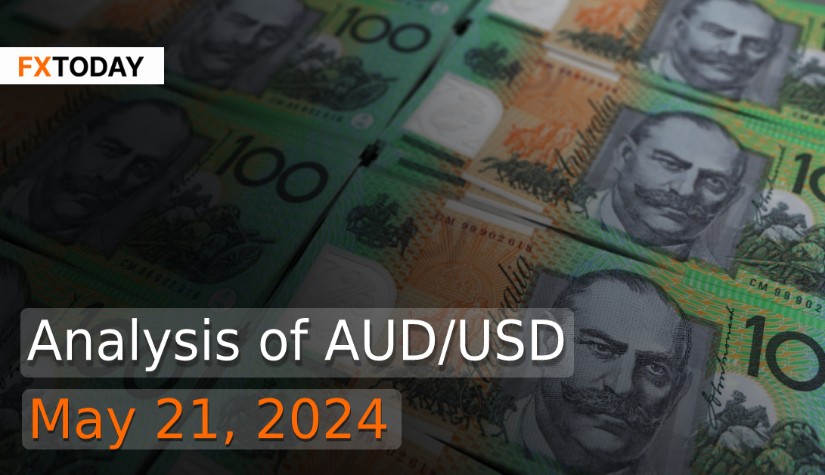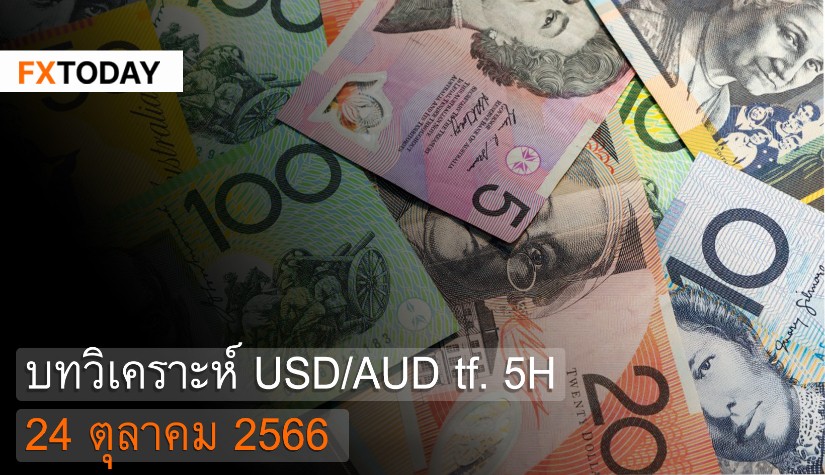Australian Dollar Sees Decline Despite 3% Monthly Rise Amid Elevated Inflation
During its May meeting, the Reserve Bank of Australia (RBA) deliberated on increasing interest rates amidst persistent inflation concerns. Although the RBA ultimately decided to maintain the existing rate, minutes from the meeting revealed discussions around a potential rate hike. The RBA acknowledged the challenge of inflationary pressures not easing as quickly as initially anticipated, driven by factors such as sustained consumer spending and tight labor market conditions.
While April's labor data showed higher-than-expected job growth, indicating a positive trend, there was also a significant uptick in unemployment, highlighting ongoing challenges. However, analysts suggest that increased government spending could help stabilize the job market, partially offsetting the rise in unemployment. Despite fluctuations, the labor market exhibited signs of gradual softening, with job growth increasing but work hours declining. This suggests a rise in spare labor capacity following two months of tighter conditions. The Reserve Bank of Australia (RBA) is expected to prioritize the overall trend rather than short-term variations in the labor market.
Additionally, Australian wage growth unexpectedly slowed in the first quarter, likely reaching its peak for the cycle. This slowdown is anticipated to ease concerns about inflationary pressure and diminish the need for further rate hikes from the RBA. Moreover, upcoming tax cuts and government rebates announced in the annual budget are projected to boost incomes and demand. Although these measures might temporarily lower headline inflation, they are forecasted to enhance spending power and contribute to overall economic growth.
Australia's upcoming annual budget is anticipated to reveal another surplus, driven by strong employment and high commodity prices. Treasurer Jim Chalmers expects inflation to ease to the Reserve Bank of Australia's target band by year-end. The budget will feature income tax cuts, energy rebates, and tax incentives for domestic industries. Chalmers faces pressure to restrain spending to avoid inflation, yet defends measures as necessary.
However, Australian consumer sentiment continues to decline due to persistent concerns over inflation and interest rates. Cooling consumer sentiment aligns with the RBA's forecast of easing inflation, with consumers prioritizing financial repair over spending. The 2024 budget and planned tax cuts were relatively well-received, but concerns about deteriorating economic conditions overshadow optimism, particularly regarding sluggish wage growth.
On Tuesday, the dollar remained strong. However, trading activity was largely rangebound as investors maintained their views on the timing and scale of potential Federal Reserve rate cuts this year.
With minimal U.S. economic data scheduled this week to influence currency movements, attention shifts to a series of speeches by Fed policymakers for insights into the U.S. rate outlook. Despite last week's data showing a welcome decrease in consumer price pressures, Fed officials remain cautious about declaring that inflation is trending towards the central bank's 2% target.
Atlanta Fed President Raphael Bostic stated that it will take time for the Fed to be confident about inflation returning to its target, while Fed Vice Chair Philip Jefferson emphasized that it's premature to determine if the recent slowdown in disinflationary trends will persist. Last week's data, which revealed lower-than-expected U.S. consumer price increases for April, prompted markets to price in 50 basis points of Fed rate cuts for this year. Consequently, the AUD/USD currency pair typically fluctuates within the current timeframe, with expectations that any appreciation of the Australian dollar will be constrained over the long run.
Data for Technical Analysis (1H) CFD AUD/USD
Resistance : 0.6660, 0.6661, 0.6663
Support : 0.6656, 0.6655, 0.6653
1H Outlook
Source: TradingView
Buy/Long 1 If the support at the price range 0.6651 - 0.6656 is touched, but the support at 0.6656 cannot be broken, the TP may be set around 0.6660 and the SL around 0.6649, or up to the risk appetite.
Buy/Long 2 If the resistance can be broken at the price range of 0.6660 - 0.6665, TP may be set around 0.6672 and SL around 0.6654, or up to the risk appetite.
Sell/Short 1 If the resistance at the price range 0.6660 - 0.6665 is touched, but the resistance at 0.6660 cannot be broken, the TP may be set around 0.6655 and the SL around 0.6667, or up to the risk appetite.
Sell/Short 2 If the support can be broken at the price range of 0.6651 - 0.6656, TP may be set around 0.6647 and SL around 0.6662, or up to the risk appetite.
Pivot Points May 21, 2024 06:16AM GMT
|
Name
|
S3
|
S2
|
S1
|
Pivot Points
|
R1
|
R2
|
R3
|
|---|---|---|---|---|---|---|---|
| Classic | 0.665 | 0.6653 | 0.6655 | 0.6658 | 0.666 | 0.6663 | 0.6665 |
| Fibonacci | 0.6653 | 0.6655 | 0.6656 | 0.6658 | 0.666 | 0.6661 | 0.6663 |
| Camarilla | 0.6657 | 0.6657 | 0.6658 | 0.6658 | 0.6658 | 0.6659 | 0.6659 |
| Woodie's | 0.665 | 0.6653 | 0.6655 | 0.6658 | 0.666 | 0.6663 | 0.6665 |
| DeMark's | - | - | 0.6657 | 0.6659 | 0.6662 | - | - |
Sources: Investing 1, Investing 2
















